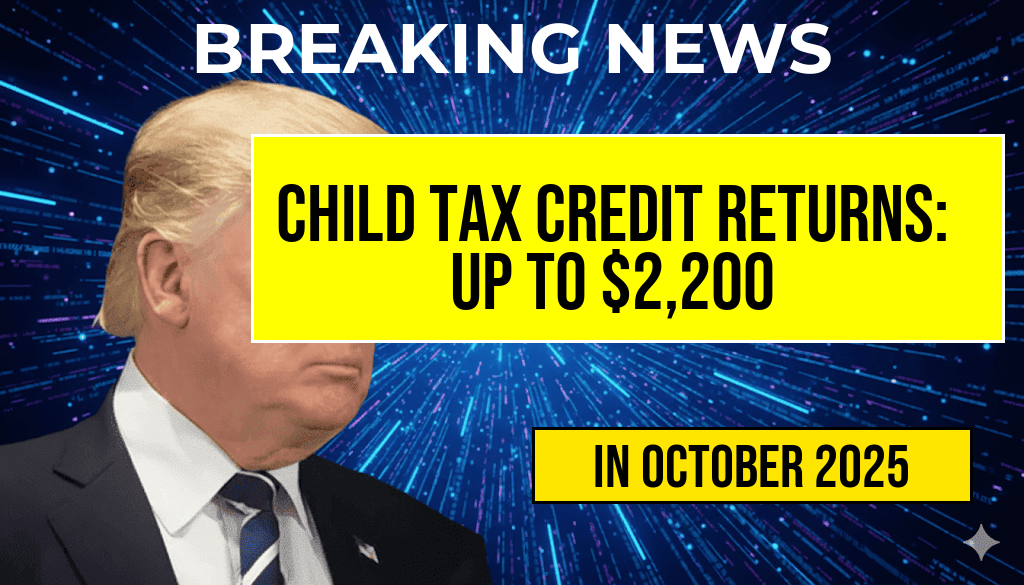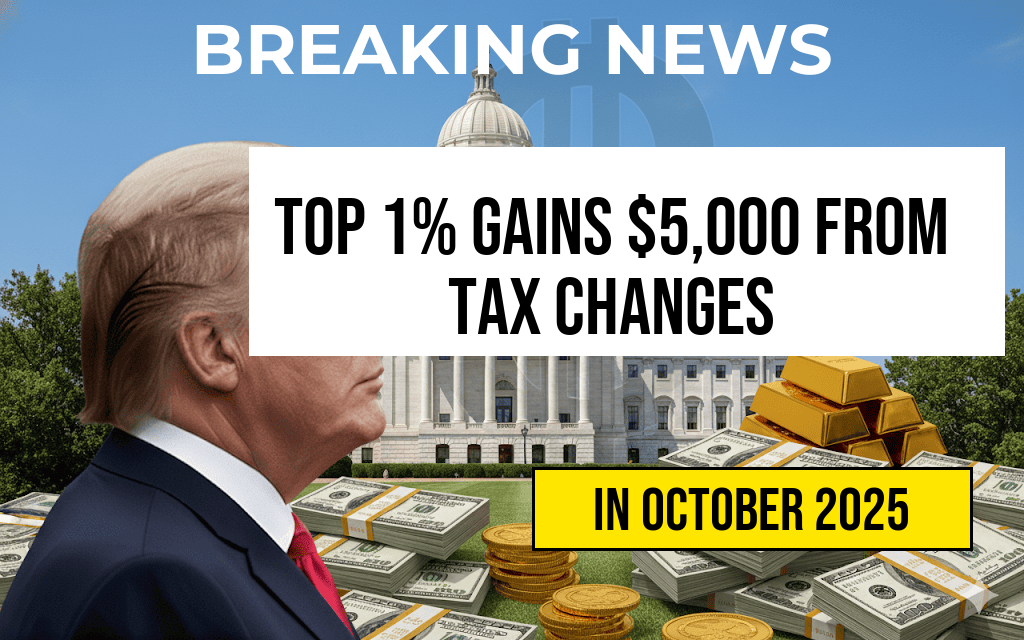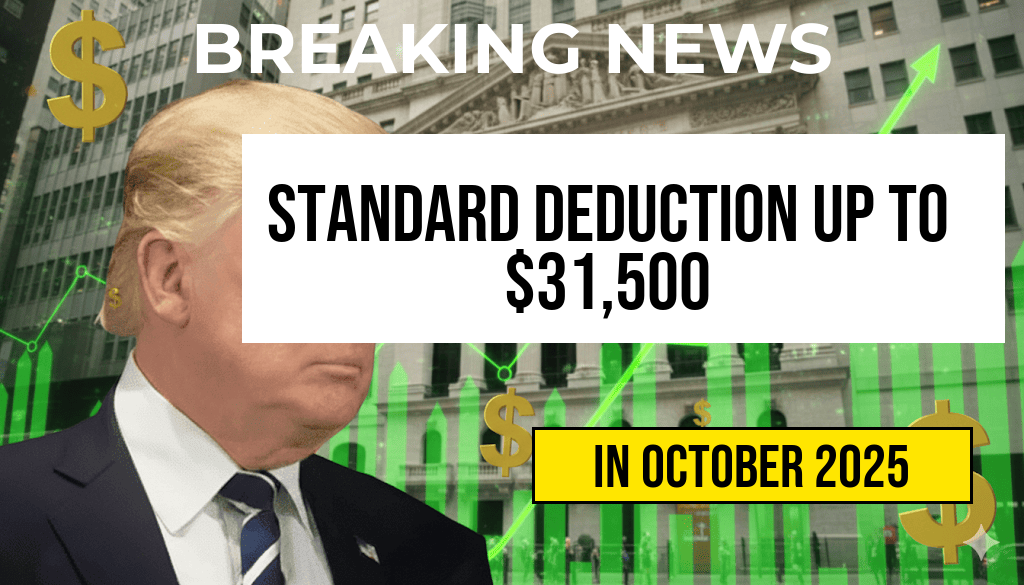Recent changes to federal tax regulations are poised to significantly benefit the wealthiest Americans, with members of the top 1% set to see an average net income boost of approximately $5,000. This adjustment follows a series of legislative updates aimed at revising tax brackets, capital gains rates, and deductions that disproportionately impact high-income households. While the overall economic narrative often centers on broad tax reforms, these targeted modifications are expected to deepen the financial advantages for America’s most affluent, reaffirming their position at the forefront of the nation’s wealth distribution. Experts suggest that these changes could influence both individual financial planning and broader economic dynamics, prompting discussions around fairness and fiscal policy effectiveness.
Understanding the Tax Adjustment Impact on the Wealthiest Americans
Key Legislative Changes Driving the Boost
- Adjustment of Capital Gains Tax Rates: The recent reforms have slightly lowered maximum capital gains tax rates for high-income earners, enabling wealthy investors to retain a larger portion of their investment returns.
- Enhanced Deductions and Exemptions: Increased exemption thresholds and itemized deductions for top-tier taxpayers effectively reduce their overall taxable income, amplifying net income gains.
- Revised Tax Brackets: The top income brackets have been modified to prevent inflationary creep from pushing high earners into higher tax tiers, resulting in a comparatively lower tax liability.
Quantifying the Gains
| Income Bracket | Average Current Net Income | Estimated Increase Post-Reform | Total Gain |
|---|---|---|---|
| $1 million and above | $400,000 | $5,000 | $5,000 |
This data indicates that, on average, the highest earners will see a modest but meaningful increase in disposable income, primarily driven by lower effective tax rates on investment income and strategic deductions.
Broader Economic and Policy Implications
Impact on Investment and Spending
With increased net income, wealthy households may expand their investment portfolios, potentially stimulating sectors such as real estate, equities, and private equity. This could lead to heightened economic activity in certain markets, although critics argue that the benefits may not significantly trickle down to lower-income groups.
Debates Over Fairness and Revenue Generation
Tax policy experts continue to debate whether these adjustments serve the broader public interest or primarily favor the affluent. Some argue that reducing tax burdens on the wealthy diminishes government revenue, potentially affecting funding for social programs. Conversely, proponents contend that incentivizing investment and entrepreneurship fosters economic growth, which ultimately benefits society as a whole.
Historical Context and Future Outlook
Historically, tax reforms targeting the top income brackets have fluctuated in their impact, often influenced by political shifts and economic conditions. Looking ahead, policymakers may revisit these provisions, especially if economic disparities widen or revenue shortfalls emerge. For now, the recent changes underscore a trend towards favoring high-income individuals, aligning with broader debates on tax equity and fiscal responsibility.
Expert Perspectives and Public Response
Financial analysts from institutions like Forbes note that while the net income boost appears modest, it could significantly influence investment strategies for the wealthy. Meanwhile, advocacy groups emphasizing income equality express concern that such policies exacerbate wealth concentration.
Summary of Key Points
- Top 1% Americans are projected to gain an average of $5,000 in net income due to recent tax reforms.
- Legislative adjustments include modifications to capital gains taxes, deductions, and income brackets.
- The changes are expected to influence investment behaviors, economic growth, and fiscal policy debates.
As the tax landscape continues to evolve, the implications for both individual wealth and broader economic stability remain subjects of active discussion among policymakers, economists, and the public. The recent reforms highlight ongoing tensions between fostering economic growth and promoting equitable tax policies.
For further insights into the structure of U.S. tax codes, visit Wikipedia’s overview of U.S. taxation.
Frequently Asked Questions
What recent tax changes are expected to benefit the wealthiest Americans in the top 1%?
The recent tax reforms are projected to provide the top 1% with an estimated $5,000 increase in net income by reducing certain taxes and adjusting brackets, thereby benefiting high-income earners.
How will the tax changes specifically impact the wealthiest Americans?
The tax reforms primarily lower tax burdens on high-income individuals through adjustments in income brackets, deductions, and credits, leading to an estimated $5,000 boost in net income.
When did these tax changes come into effect?
The tax reforms were implemented as part of recent legislative updates, taking effect at the beginning of the current fiscal year, with some provisions phased in over time.
Are there any eligibility criteria for high-income Americans to benefit from these tax changes?
Yes, the tax benefits are targeted at individuals in the top 1%, typically those with incomes exceeding a certain threshold, which varies based on the specific provisions of the reform.
What is the overall economic impact of these tax changes on the wealthiest Americans?
The tax reforms are expected to increase the net income of the top 1% by around $5,000, potentially influencing investment, savings, and consumption patterns among high-income earners.










